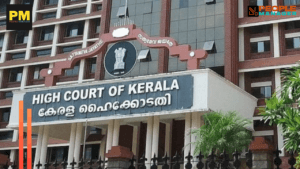Use of Abusive Language against Superior is not Warrant of “Capital Punishment” for dismissal from services: Madras High Court
In response to an appeal, a single judge of the High Court suspended the labour court's decision, claiming that it had been made automatically. Raja then submitted an appeal, which the current Division Bench adjudicated.

Use of Abusive Language against Superior is not Warrant of “Capital Punishment” for dismissal from services: Madras High Court
According to a recent ruling by the Madras High Court, using harsh language or getting into a heated dispute with a superior may not always be grounds for the “capital punishment” of dismissal from employment.
A former trade union member named S Raja, who was fired from one of Hindustan Unilever’s (HUL) tea companies thirteen years ago, filed an appeal, which was accepted by a bench of Justices S Vaidyanathan and R Kalaimathi.
Raja is accused of using derogatory language against his superiors in 2009 and even yanking one of the management team members by the neck of his shirt.
Raja’s employment was terminated after an investigation. He subsequently went to a labour court, which ordered that he be reinstated and paid half of his back wages for the time he was out of work.
In response to an appeal, a single judge of the High Court suspended the labour court’s decision, claiming that it had been made automatically. Raja then submitted an appeal, which the current Division Bench adjudicated.
While granting his appeal, the Bench stated that when imposing penalty, an authority must consider the “extenuating or aggravating situation, as well as the past record of an employee.”
“In this case, the Workman received a punishment in 2001, and the current incident occurred a decade later.” It cannot be assumed that the Workman has engaged in such misbehavior on a regular basis.
As previously indicated, the use of harsh language may not be serious enough to warrant a death penalty or removal from service, according to the ruling.
The Court further stated that the labour court has the authority to intervene in the sentence if it is determined to be “grossly disproportionate. “In considering what might have provoked Raja’s outburst, the Court stated, “What induced the Workman to behave in this manner against his Superior Officer, causing him to hold his collar, and who was the root cause of the Workman’s sudden provocation, which is of course construed to be unbecoming of a Workman, is a question of fact.” We cannot expect a low-level employee to act like Jesus and turn the other cheek in the face of a voluntary slap.
The contested factual issue cannot be addressed in this appeal. This observation does not imply that we condone the employee’s actions or approve of his wrongdoing.”
As a result, the Court granted Raja’s appeal and partially changed the labour court’s judgement. Raja was ordered to be reinstated at HUL with no back pay.
- Financial Crisis Cannot Compel an Employee to Work, Resignation Rejection Amount to Bonded Labour: Kerala High Court. - February 17, 2026
- Pernod Ricard India introduces Cheers VRorld, an industry-first VR-powered onboarding experience in the Alco-Bev sector - February 11, 2026
- Jio-bp Appoints Sareeta Bhatikar as Chief Human Resources Officer to Steer Next Phase of Growth - February 11, 2026








